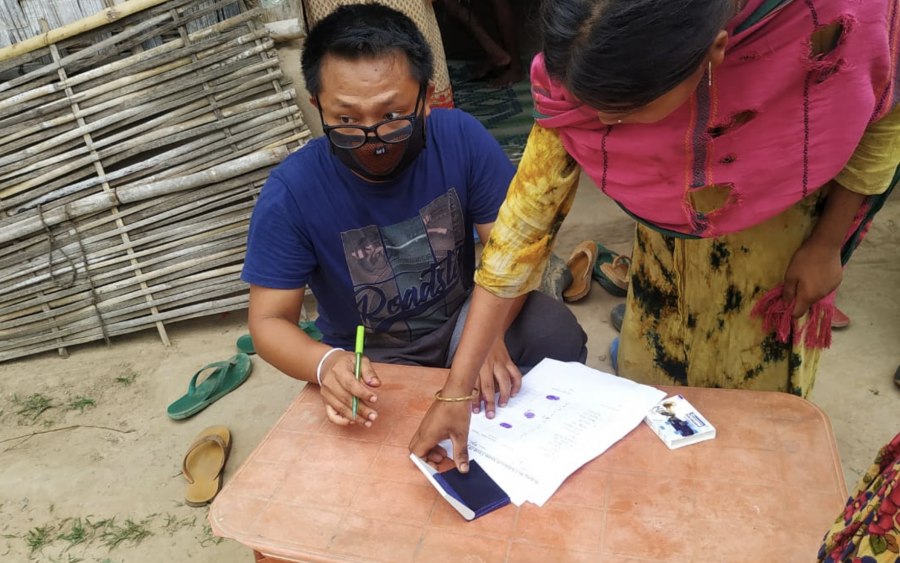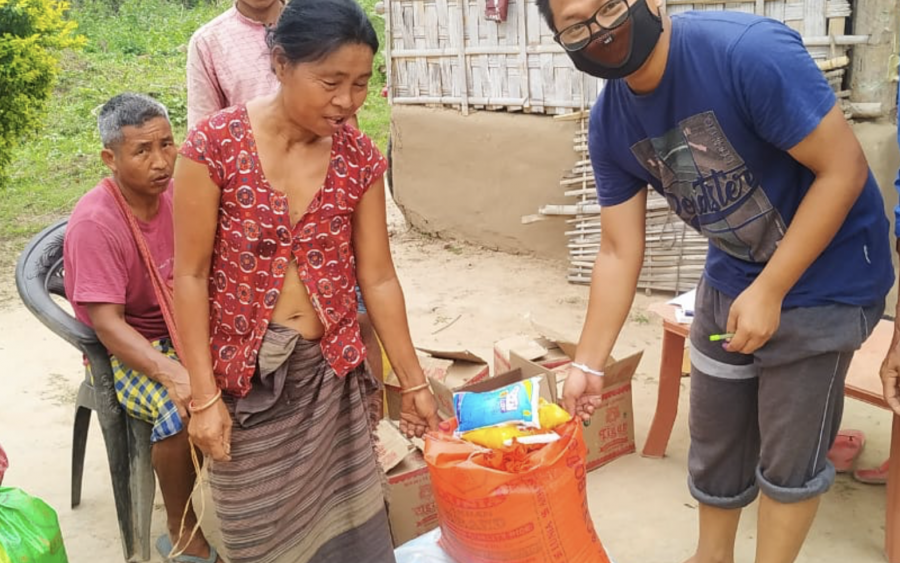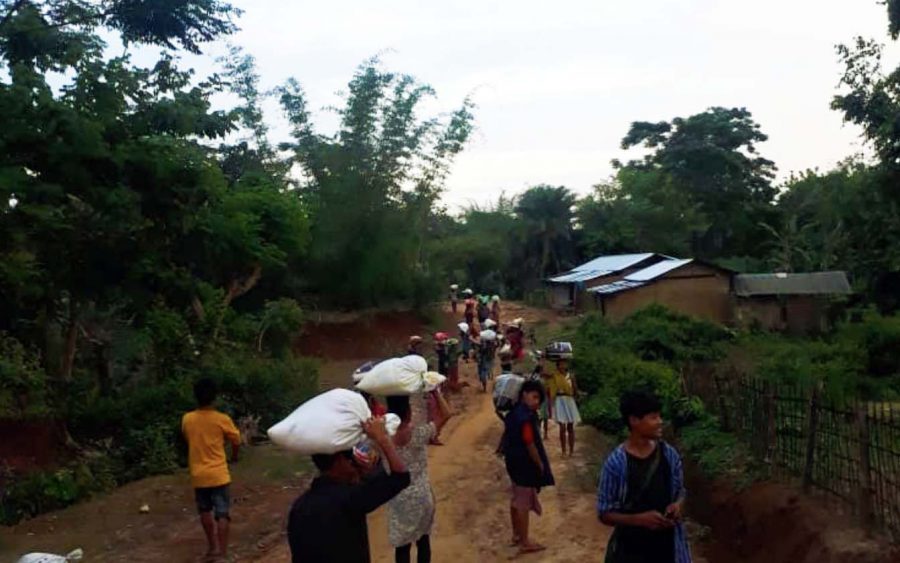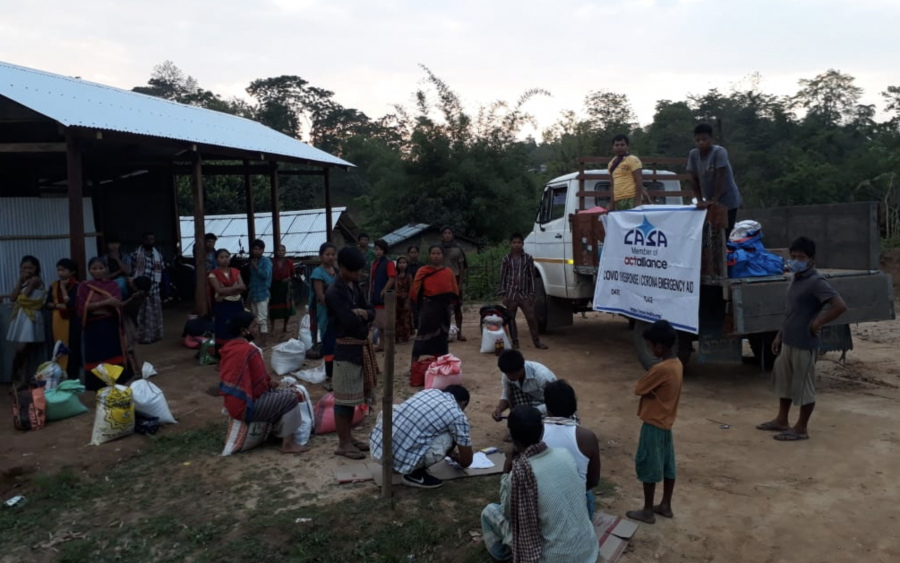- home

- Publication & Resources

- Blog
- IMPACT OF CORONAVIRUS ON FOREST-DWELLING COMMUNITIES
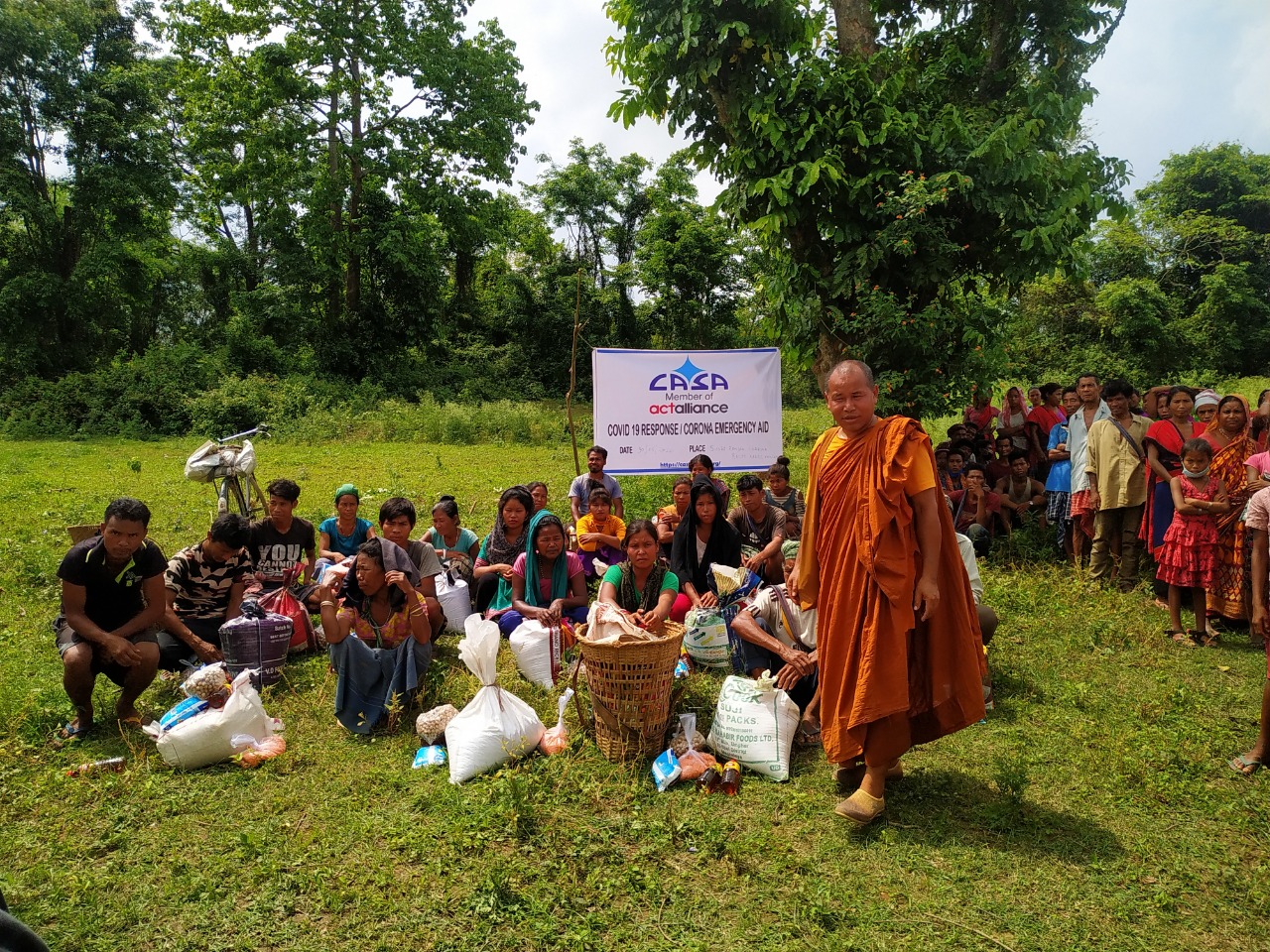
IMPACT OF CORONAVIRUS ON FOREST-DWELLING COMMUNITIES
“I traversed 12 to 13 kilometres on foot, through the forests, to reach the villages which the Chakma tribe had inhabited. The path to reach the region was unmetalled and muddy. When I first arrived in a village called Tedangnala, I saw that the majority of the households had lack of access to basic necessities. The novel coronavirus may not affect the isolated communities in India, but hunger definitely will.”
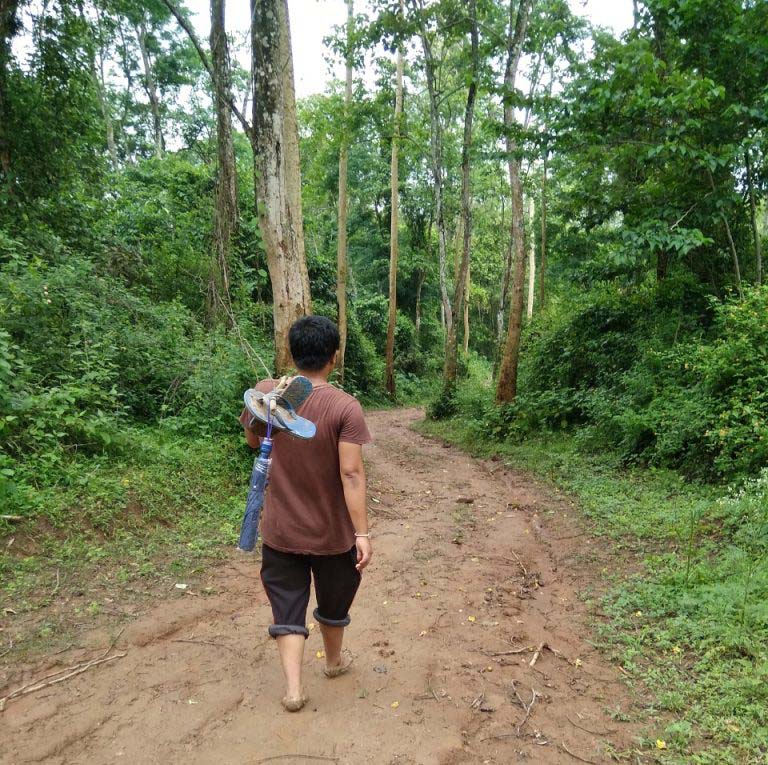
Sukan Chakma walking on the muddy path to reach the villages
CASA’s Programme Associate, Sukan Chakma reached out to the Chakma tribe in four villages of Assam in the midst of the COVID-19 lockdown to provide relief materials to the communities. At present, the tribal community is in dire straits due to the implications of the COVID-19 lockdown which was imposed on 25th March,2020. Their livelihoods have been jeopardised as their only source of income was earned by selling their agricultural produce.
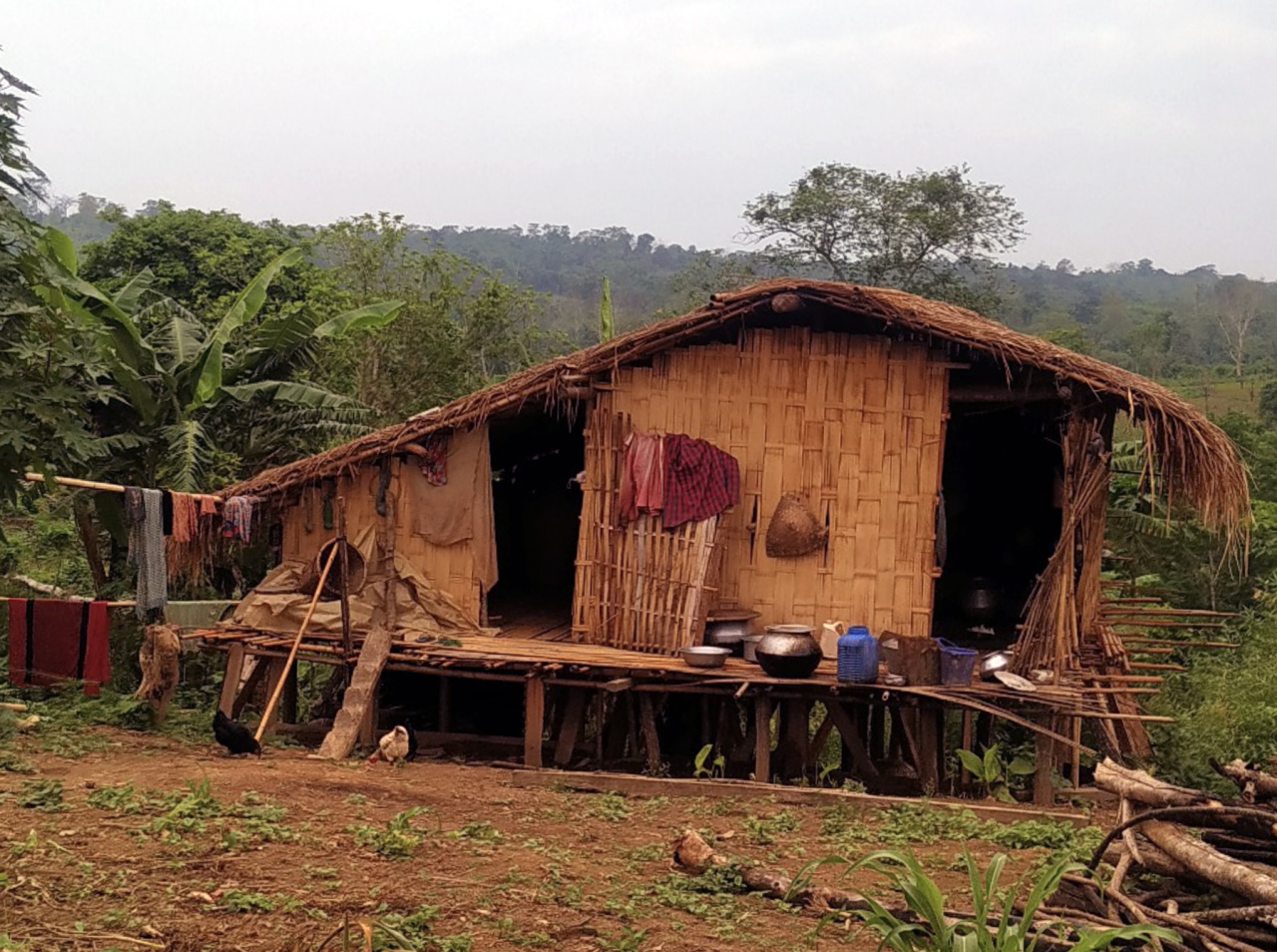
The traditional Chakma house is made of bamboo
“I gathered information regarding their living conditions through friends and social media by contacting my school seniors who had already visited the villages. Hailing from the Chakma community myself, I wanted to offer help but I couldn’t contact anybody from the village through phone hence I decided to visit the place and assess the situation from the ground.“
The Chakma tribe is a forest-dwelling community that is dispersed across the North-eastern states of Tripura, Mizoram, Assam and Arunachal Pradesh. The tribe has its historical origins in the Arakan territory (present day Myanmar) and are presently found in India, Bangladesh and Myanmar.
There are more than 550 families from the Chakma tribe that reside in the interior regions of Karbi Anglong and Hojai districts in Assam. They lack proper road connectivity and communication channels, and the closest market is located 10-15 kilometres away from their village. Due to the distance, they are deprived of basic healthcare facilities, schools, etc.
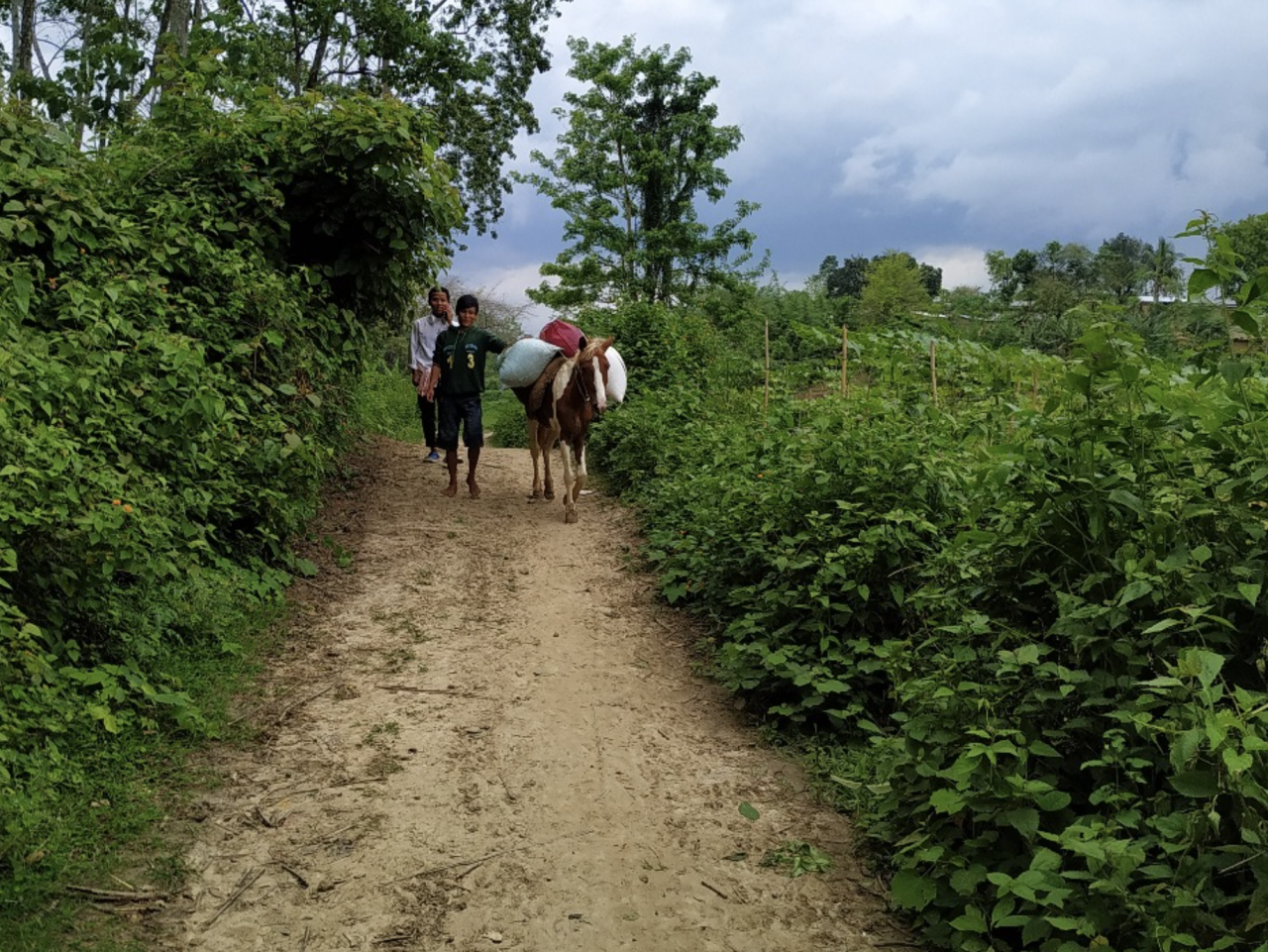
Sukan Chakma bringing dry ration to the community on a mule
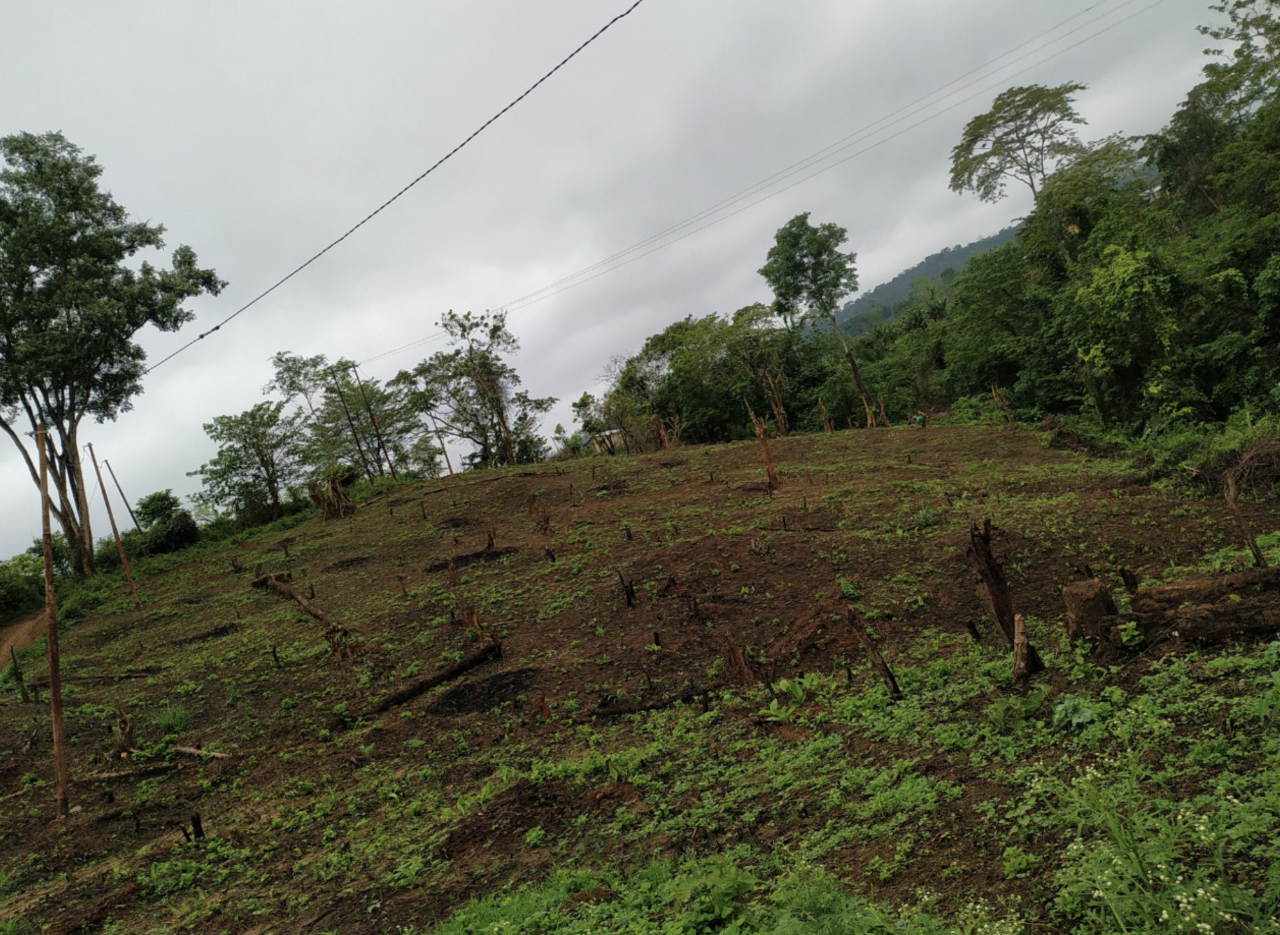
Jhum cultivation field
The Chakma’s practice Jhum cultivation i.e. a method which includes cutting and burning of plants and trees in an area which is left to dry before the rainy season, and ploughed immediately after the shower. After cultivating in a particular piece of land, they shift to another patch, and the cycle continues. This method is said to improve the soil quality. The Chakma tribe’s only means of income is their agriculture, which has come to a complete halt due to the COVID-19 lockdown. Although the COVID-19 lockdown was relaxed for the forest-dwelling communities, the traders were still affected. This in turn affected the economy of the tribals as their produce could not be sold.
Majority of the people from this tribal community do not have documents like ration cards, voter IDs, and other such entitlements to avail government facilities. The nearest ration shop is one day away by foot, so the ones who even had ration cards choose not to avail the ration due to the distance.
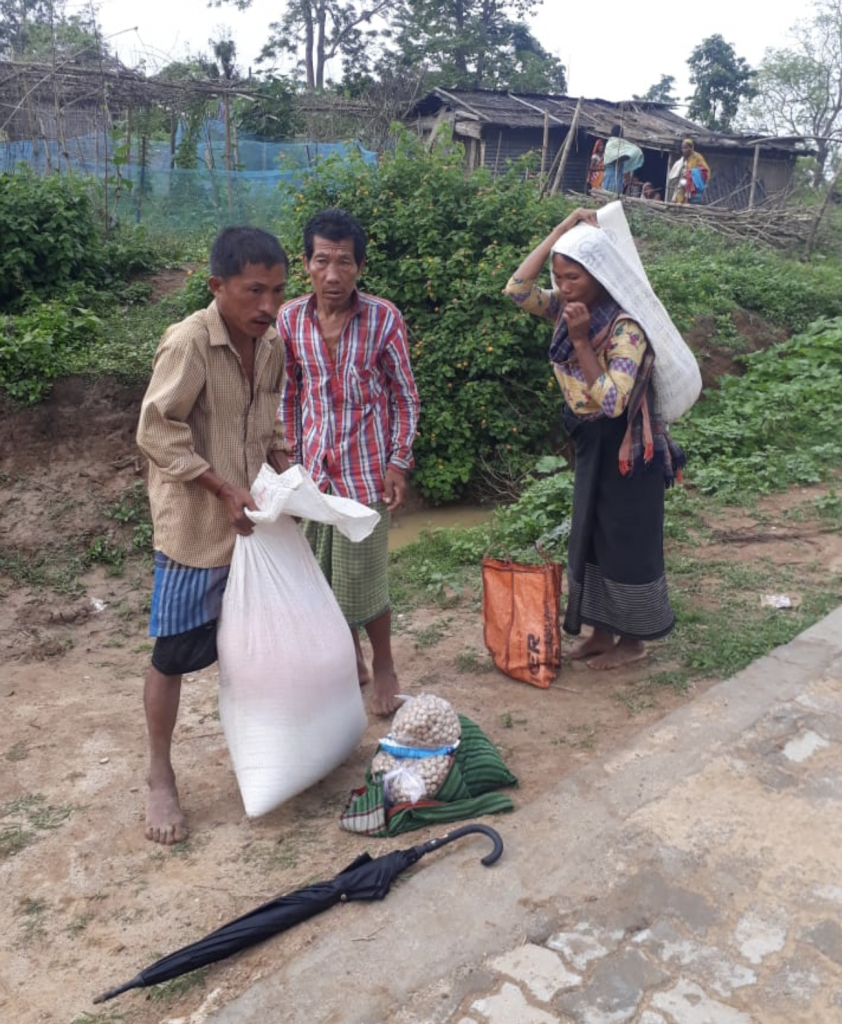
Dry ration distribution
“My husband is physically weak and is unable to work. Since the lock down, we do not have anything to eat because the markets have been closed and we haven’t been able to sell our Jhum products. I have four children and we all have been surviving by eating jungle potatoes only. We don’t even get that when it rains. Children cry out of hunger but what can we do?”, shared Alomoti Chakma of Sushi Ranjan Chakma Basti in Assam.
The country-wide lock down imposed to prevent the spread of the COVID-19 pandemic has gravely affected the lives of forest-dwelling communities. CASA reached out to 767 families of the tribe and provided dry ration that included rice, pulses, soyabean, mustard oil and salt. We also reached out to other tribes such as Karbi, Garo, Kachari as well as migrant communities and provided them with relief materials. “At first it was an individual approach to just reach out to one particular community but because of CASA, we were able to reach out to further more.” Sukan was stuck in the remote regions of Assam for about a month due to heavy rains but his sheer commitment to humanity paved the way to serve the isolated communities.
Story covered by Sukan Chakma, Programme Associate, CASA
Written by Pankhuri, Communications Associate, CASA
 Previous Blog Post The Snake Charmers that lost their sway
Previous Blog Post The Snake Charmers that lost their sway  The Succour to her Lost World
The Succour to her Lost WorldFeatured Post

International Women’s Day -2021
8 Mar 2021
International Women’s Day -2021 is very special for CASA. It’s a delight to announce, CASA with the support of the Church of Sweden has launched an exclusive Gender Desk to emphasise the importance of Gender Justice work. CASA has been working for Gender Justice all throughout and across our constituencies in all these years. Gender Desk comes to add vigour […]

Overcoming Gender and Poverty Barriers
Poverty has been an inevitable problem in India since the beginning of time. The increasing problems of poverty caused by overpopulation and the unequal distribution of wealth among the people have led to a huge impact on the life of millions in the rural as well as the urban area. A person has to acquire […]
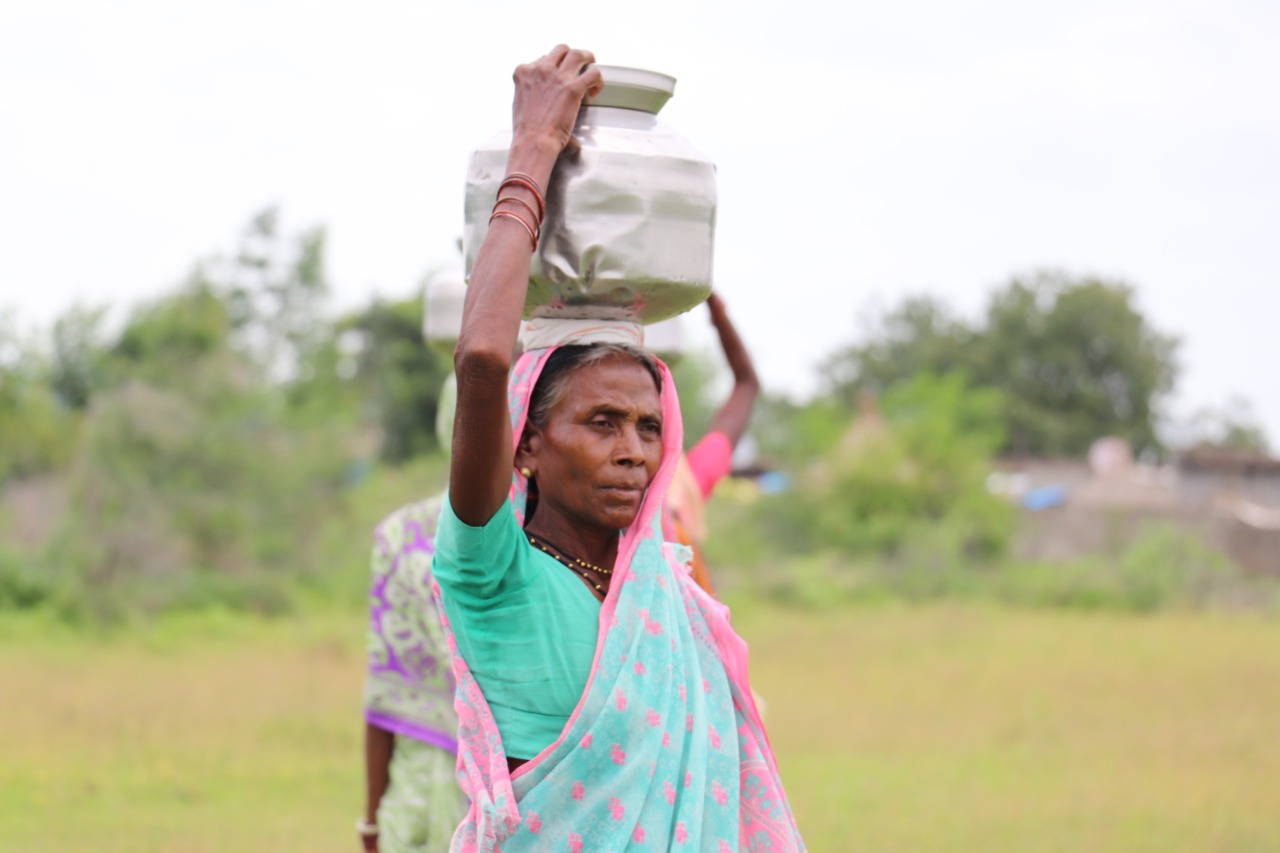
Impact of Climate Change on Women
16 Jan 2021
Climate change is a prevailing problem globally whose hazardous repercussions extend beyond the environment. Shrinking glaciers, extinction of plants and animal species, mutation, rise in the Earth’s average temperature and triggered seasonal fluctuations, are some of the impacts of climate change that have already grabbed the headline. Certain early predictions pertaining to climate changes had […]



